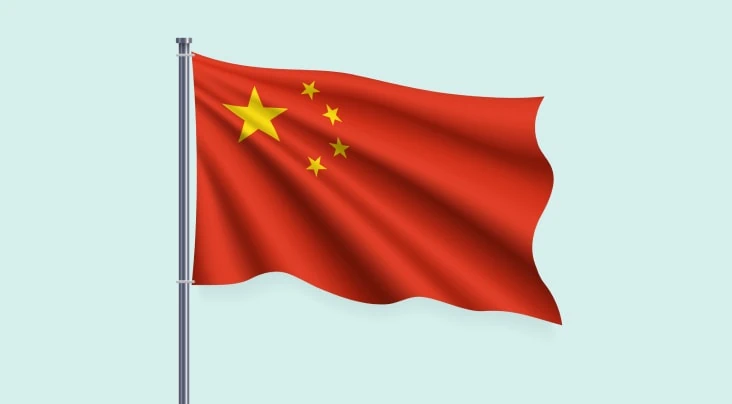The Measures for the Administration of Internet Advertising (Measures), promulgated on February 2, 2023, represent the finalized version of the previously released Interim Measures. Based on the People’s Republic of China (PRC) Advertising Law and the PRC eCommerce Law, the newly released Measures not only provide an upgraded framework that lays down acceptable standards and practices related to online advertising in China but also encourages transparency, preserves fair competition in the market, and promote greater accountability.
The new Measures came into effect on May 1, 2023, meaning organizations must be prompt in reshaping their advertising practices to ensure compliance with these Measures.
Read on to learn more about whom these Measures apply to, what information they apply to, and the new rules and slight alterations introduced in them compared to the Interim Measures.
I. Who Do the Measures Apply to?
The provisions of these new Measures will apply to all entities that carry out commercial advertising activities within the mainland territory of the People's Republic of China and use websites, web pages, internet applications, and other internet media (such as text, images, audio, or video, etc.) to either directly or indirectly market goods or services.
Additionally, there is a requirement that all online advertisements must be both truthful and lawful. They should also conform to the appropriate principles, present the advertising content in a wholesome manner, and align with the standards set for the development of a socialist spiritual civilization and the preservation of traditional Chinese culture.
Lastly, the Measures, along with the Advertising Law, apply to natural persons, legal persons, or other organizations using the Internet to undertake the following tasks:
- Publish advertising for advertisers or the Advertising agents they have retained;
- Provide information services;
- Engage in internet advertisement design, production, representation, or publication.
II. New Rules
The new rules introduced in the Measures related to internet advertising include:
a. No Hidden Medical Internet Advertising
Per these new Measures, organizations are strictly prohibited from conducting any advertising for the following:
- Medical treatments;
- Medication;
- Medical devices;
- Food with health claims;
- Formula products with medical claims.
Any of the products mentioned above cannot be introduced or promoted directly or indirectly through health and fitness explanations on a webpage. Details such as the address, contact information, purchase links, or other particulars of organizations selling these products/services cannot be displayed on the same page at the same time as health and fitness explanations.
The advertisement review organs will conduct review and approve advertisements for medical care, pharmaceuticals, medical devices, pesticides, veterinary medicine, health foods, and special foods for medical purposes before they can be published. Internet advertisements that require review must be published as approved without editing or revision.
Lastly, any website, pages, internet media, etc., aimed at minors must not be used to publish advertisements for medical care, medicine, health foods, medical-use foods, medical instruments, cosmetics, alcohol, beauty, or even online games that may be harmful to their physical and mental well-being.
b. Livestreaming is Advertising
While the live streaming of products is nothing new and has been a common practice within China for decades, the rise of social media platforms and social media influencers has led to a proliferation of constant product live streams online.
Hence, under the new Measures, live streams featuring any product/service will be considered a form of internet advertising, subject to the appropriate regulations. Similarly, the individuals involved in such live streams, such as the live-stream product owner, the livestream website operator, and the live-stream service provider, will now all be considered advertising agents or publishers based on the degree of their involvement.
Lastly, individuals who promote any products/services on live streams based on their own personal use and experience with the product will now be considered endorsers, subject to all the relevant requirements and provisions under the PRC Advertising Law.
c. Consent for Advertising on Smart Devices
The new Measures bring much-needed clarity on the subject of product/service advertisements on smart devices such as virtual assistants, i.e., Alexa, Bixby, or Cortana. Pushed notifications for products and services such as vehicles, smart home appliances, e-readers, and navigation devices have long been a staple of such smart devices. Still, there has been a great degree of ambiguity in manufacturing companies and others using these to push their products.
However, the new Measures expand the consent requirements per the Advertising Law to cover all such product/service notifications via such smart devices. Per the Interim Measures, such consent requirements would have been limited to any emails pushed by smart devices containing such advertising materials.
The new Measures stipulate that advertisements must not interfere with users' normal network usage. Paid listings should not be inserted into search results on government websites, web pages, internet applications, public accounts, etc. Moreover, unwanted internet ads should not be sent to users' vehicles, navigation devices, smart home electronics, or as attachments in emails or instant messaging without their consent or explicit refusal.
III. Improvements
Similar to the new additions, various improvements are introduced that aim to modify certain organizational advertising practices. These include the following:
a. Misleading Clicks
The new Measures expressly prohibit using black hat tactics to get users to click on certain links redirecting to product/service pages. The elaborate examples listed include fake alarms on system updates, system errors, clearances, notices, and so on, as well as fake symbols for playing content, starting, pausing, and returning.
Additionally, such misleading practices also include false promises of rewards. Any Advertising agent or publisher who is found guilty of tricking users into clicking such advertisements will be liable to pay fines ranging between 5,000 and 30,000 RMB.
b. One-click Pop-up Closure
Under the new Measures, any advertisement being shown to the user must clearly and conspicuously mark the pop-up close sign and may not hinder the one-click closure of pop-up ads in any way.
Black hat tactics that aim to stall a user from closing an ad, such as timers requiring users to wait a specific time before being able to close an ad, the presence of a fake close sign or an invisible or difficult-to-identify close sign or close signs where two clicks or more are required to shut down the advertising, or other practices such as re-popping up after closure are henceforth strictly prohibited.
c. Identifiable Advertising
This was yet another aspect of advertising that lacked any regulatory oversight. Advertisers are required to clearly label paid listings as "advertisements" and distinguish them from natural search results. Advertisers can no longer create internet content designed to be advertisements under the guise of knowledge introduction, experience sharing, or consumption evaluation. If any content contains a product/service being promoted, it must be appropriately labeled as advertising material to ensure it is easily recognizable.
The new Measures state that all such content should contain a visible tag, clearly marked as advertising, as is the case for sponsored results and shopping links.
d. Record Maintenance
Regarding organizations' operational and functional duties, the new Measures require all advertising agents and publishers to establish registration, review, and archive management systems.
Moreover, such systems should be capable of verifying and registering advertiser information, such as their true identity, address, and contact details, establishing advertising archives, regularly verifying and updating those archives, and verifying supporting documents and advertisement content. Advertisers that run advertisements on their own websites must store the aforementioned relevant records for the advertisement for at least three years after having advertised.
Lastly, personnel with appropriate understanding and familiarity with China's Advertising Law must be hired to ensure adequate cooperation with any regulatory reviews requested or ordered by the government.
IV. How Securiti Can Help
With its various data privacy laws, China requires all subject organizations to have a robust and effective compliance framework that enables proactive adherence to any regulatory requirements.
Securiti, a leader in providing enterprise data governance, compliance, security, and privacy solutions, empowers organizations to comply with China's various data privacy laws through its cutting-edge machine-learning and AI-driven automation solutions. Securiti's Universal Consent Management (UMP) solution automates the process of capturing and revoking users' consent for data processing.
Request a demo today and learn more about how Securiti can help your organizations comply with the new Measures and the rest of China's data privacy laws.











